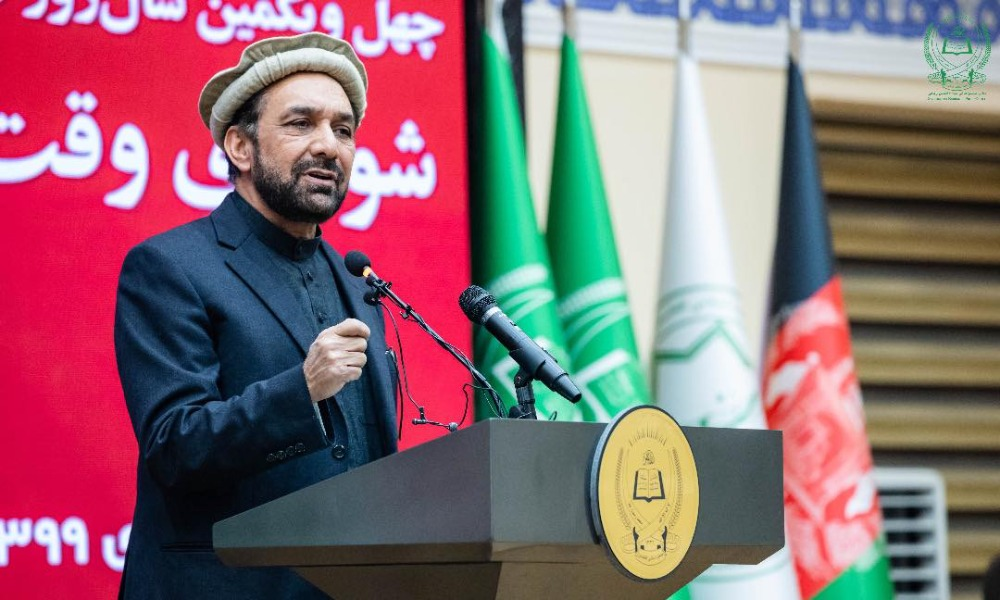Jamiat-e-Islami calls for interim government

The Jamiat-e-Islami party on Saturday called for an interim government to be established in order for a peace agreement to be reached with the Taliban.
Addressing a gathering on the occasion of the 41st anniversary of the Soviet Union invasion in Afghanistan, the party’s deputy leader Ahmadzia Massoud stated that after the formation of the interim government a Loya Jirga should be called in order to make a decision over the structure of the government.
“Let talk about the mechanism of peace talks, from where to start and where to end up; first we want a ceasefire, second an interim government should be formed,” Massoud said.
The Afghan government, however, rejected the proposal but the Jamiat party believes that the government cannot control the current situation.
“Let the security forces and the Defense Ministry transfer the power to the Defense Ministry and security forces to enforce an emergency situation in the country; a counter-terrorism [operation] should start and in the meantime we pursue a peace program to reach a result,” Massoud noted.
The intra-Afghan talks are expected to resume on January 5 and will focus on a joint agenda for the talks.
On December 24, 1979, the Soviet Union invaded Afghanistan, under the pretext of upholding the Soviet-Afghan Friendship Treaty of 1978.
The Soviets carried out a massive military airlift into Kabul in the early hours of December 24, involving an estimated 280 transport aircraft and three divisions of almost 8,500 soldiers each.
Within a few days, the Soviets had secured Kabul, deploying a special assault unit against the palace. Elements of the Afghan army loyal to Hafizullah Amin put up a fierce, but brief resistance.
On December 27, Babrak Karmal, exiled leader of the Parcham faction of the Marxist People’s Democratic Party of Afghanistan (PDPA), was installed as Afghanistan’s new head of government. And Soviet ground forces entered Afghanistan from the north.
The Soviets, however, were met with fierce resistance when they ventured out of their strongholds into the countryside.
Resistance fighters, called mujahidin, saw the Soviets controlling Afghanistan as a defilement of Islam as well as of their traditional culture and proclaimed a Jihad against them.
The fighters used whatever weapons they could grab from the Soviets or were given by the United States but things changed in 1987 with the introduction of US shoulder-launched anti-aircraft missiles. The Stingers allowed the mujahidin to shoot down Soviet planes and helicopters on a regular basis.
By then Mikhail Gorbachev was in power and decided it was time to leave and demoralized and with no victory in sight, Soviet forces started withdrawing in 1988. The last soldier left in February 1989.
